What you should know
Risks for transmission
- HSV-2 is most commonly transmission by unprotected anal or vaginal intercourse
- It can also be transmitted from the mother to the baby during pregnancy and delivery
- HSV- 1 is most commonly transmitted by oral or genital sex
- Up to 70% of all genital HSV-2 infections are transmitted when people are not having any symptoms or lesions. This is called “asymptomatic shedding.”
Symptoms
Primary Infection
- Flu-like symptoms including fever, headache and sore muscles
- Swollen lymph nodes
- Inflammation in the nervous system (aseptic meningitis) in up to one quarter of cases
- Pain while urinating
- Genital pain
- Presence of genital ulcers
- Symptoms resolve after approximately 15 to 23 days
Recurrent Infection
- Slightly less severe than initial infection
- A slight tingling, itching, or burning may be a sign that an active outbreak is coming
- These can be triggered by stressors (such as illness, surgery, emotional stress), the menstrual cycle, sexual intercourse, surgery, and some medications
- Infection from oral sex can cause sores inside the mouth or on the lips of both men and women
- Symptoms typically appear within two to twenty days of infection
- Symptoms resolve after approximately 9 to 11 days
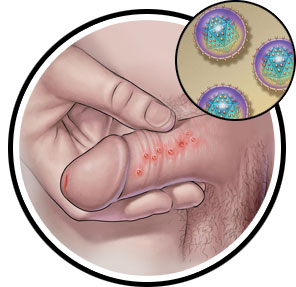
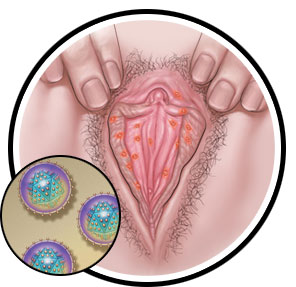
Prevention
- Use condoms during sexual intercourse
- Avoid sexual intercourse if your partner is having a prodrome (early symptoms)
- Avoid sexual intercourse if you or your partner is having active genital or oral lesions
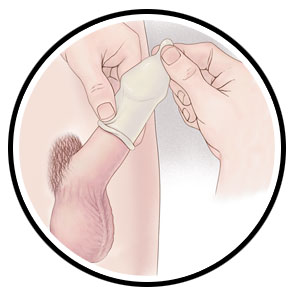
Testing
- Herpes is tested by swabbing an active lesion
- A blood test can also detect HSV-1 or
HSV-2 infections - Sexual partners from the 60 days prior to prodrome onset should be informed if you had an outbreak of Herpes; they can consider blood tests to see if they carry Herpes as well.
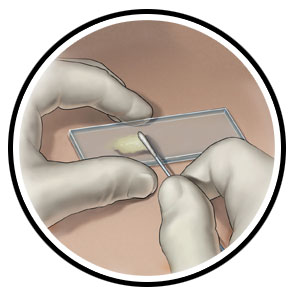
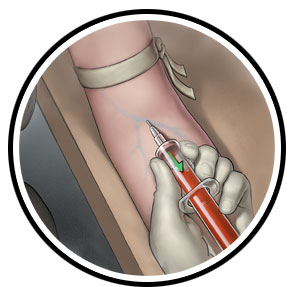
Treatment
- There is no known cure for Herpes
- Antiviral medication is effective to decrease the duration and severity of the outbreaks
- To be most effective these treatments must be started immediately after the prodrome symptoms appear
Complications
- By themselves HSV-1 and HSV-2 are generally not considered a serious health risk.
- Infected pregnant women can pass the virus to infants during birth, causing lesions and possibly life-threatening infections of the central nervous system of the baby.
- In very small number of cases HSV can cause meningitis or encephalitis (inflammation of the brain).
- Herpes infection of the eye can cause scarring of the cornea and even blindness.
- Herpes increases the risk of transmission of HIV, the virus that causes AIDS. People with HIV can have particularly severe outbreaks of HSV, which can be a sign they have progressed to have AIDS.

